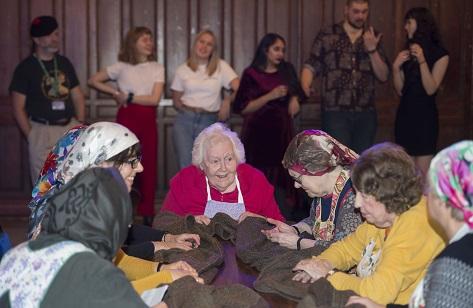Section 2: Gaelic use at the University
The University will:

a. reply in Gaelic, if a response is required, when receiving written correspondence in Gaelic. Correspondence submitted in Gaelic may be read and translated by a translator, and the University will ensure that correspondents are made aware of this through publishing a link to a privacy notice anywhere this is advertised.
b. give a response in Gaelic if a complaint is received in Gaelic. Timescales for any such response will remain standard to those published in the complaints procedure. This will be clearly advertised on the complaints webpage. Complaints submitted in Gaelic may be read and translated by a translator, and the University will ensure that complainants are made aware of this through publishing a link to a privacy notice anywhere this is advertised.
c. work with our Service Excellence Programme to design and produce a number of key forms in bilingual format based on the outcome of their forms audit, stating clearly which forms will be accepted in Gaelic. These forms will demonstrate equal respect for Gaelic and English.
d. make Gaelic word processors, browsers and spell checkers available on staff and student computers. Information will be provided to students about Gaelic IT.
e. put forward a business case to establish a Gaelic residential flat for matriculated students. This programme will be developed alongside the University’s British Sign Language residential scheme.
f. continue the policy that undergraduate theses and dissertations submitted for assessment and examination may be presented in Gaelic, subject to the terms described in the University’s Taught Assessment Regulations.
g. continue the policy that postgraduate theses and dissertations submitted for assessment and examination may be presented in Gaelic, subject to the terms described in the University’s Postgraduate Assessment Regulations for Research Degrees.
h. subject to tutor availability and student demand, endeavour to organise a Gaelic-medium tutorial group in the following courses: Celtic Civilisation 1A and 1B, Scottish Studies 1A and 1B and all courses on the MA Education as well as the MSc Transformative Learning & Teaching.
i. where a Gaelic-speaking tutor is available, endeavour to assign a Gaelic-speaking Personal Tutor within a student’s School to any student who so requests.
j. create Gaelic language policies in Celtic & Scottish Studies and in the Moray House School of Education and Sport.
k. create bilingual websites in the department of Celtic & Scottish Studies and in the Moray House School of Education and Sport that will demonstrate equal respect for Gaelic and English.
l. continue to produce Subject Information Sheets in Celtic & Scottish Studies bilingually and will produce Subject Information Sheets in Moray House School of Education and Sport bilingually.
m. survey all staff and students to ascertain how many speak Gaelic.

